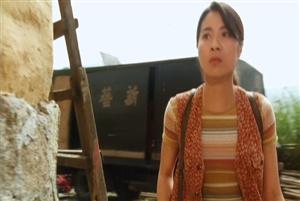« The Sanctuary | Main | Coffee Break »
May 20, 2010
Two films about Hong Kong filmmaking

Ah Kam/A Jin de gu shi
Ann Hui - 1996
Mei Ah Laser Disc Co. Region 0 DVD

My Name is Fame/Ngor yiu sing ming
Lawrence Ah Mon - 2006
Tai Seng Region 0 DVD
The story of Ah Kam is about a woman who appears on a movie set to serve as a stand-in, accepts an on the spot offer to film some stunts, and even serves as the action director on another movie. The film is most interesting when it is about filmmaking, and might have been something like the Hong Kong equivalent to Hal Needham's Hooper. The narrative wanders off to follow Ah Kam as she falls in love with a businessman who takes her back to China, where they live together while she manages his new nightclub. The boyfriend turns out to be less than faithful, and Ah Kam returns to Hong Kong. The action director, Tung, that she worked with, has found himself in deep trouble with gangsters.
What is worth watching are the scenes that give some idea of filmmaking in Hong Kong, where action scenes are usually handled by a specialized director who coordinates both what the stunt performers with do, and also how they will be filmed. Part of the strength of Hooper was that story elements were taken from Hal Needham and Burt Reynold's own experiences in filmmaking. A more interesting film might have been made using Sammo Hung's experiences both in front of and behind the camera, giving his character of Tung more depth. When Michelle Yeoh, as Ah Kam, is given the chance to direct some action scenes, I was hoping that the film might use some of Ann Hui's own experiences, possibly referring to her work as assistant to King Hu, and that perhaps Ah Kam would have worked her way up in Hong Kong's film industry.

The action was choreographed by Ching Siu-Tung, who probably doesn't have a shortage of his own behind the scene stories. Two smaller roles of film directors are played by Teddy Chan, director of the currently acclaimed Bodyguards and Assassins, and < a href=http://www.filmref.com/directors/dirpages/yim.html>Yim Ho. The film was produced by Raymond Chow, most famous for Enter the Dragon. There is footage during the final credits of Yeoh injuring herself, jumping from a bridge to a moving truck. Given that Yeoh was unable to work for three weeks gives some credence to this review of the film that indicates that the released film was not the film Ann Hui had originally intended to make, but one that had to work around Yeoh's physical limitations. There is little online to address these questions, at least in English. It is also worth noting that Yeoh has returned to Chinese language filmmaking with two martial arts films at the age of 47.

Filmed ten years after Ah Kam, Ann Hui plays the part of a director in My Name is Fame. Lau Ching Wan plays the part of a once promising actor, Fai, with a career that has dissolved to bit parts. A young would be actress, Faye (Huo Siyan), fresh from the mainland seems to be the only one to remember the better part of Fai's career and ingratiates herself, making him a reluctant acting coach and manager. Under Fai's tutelage, Faye goes from bit player to star. The film ends during the Hong Kong Film Awards, with Fai one of five nominees for supporting actor, with the winner to be handed the award by Faye. Faye fumbles with the envelope and the viewer never knowing who won the award. It may not be coincidental that My Name is Fame actually won two acting awards, and received four nominations from the real Hong Kong Film Awards.
There are some sight gags, such as watching Faye repeating a chase scene where she falls, until one leg is injured. Dressed in a flowing red gown for an action scene, Faye is hoisted a bit too energetically on the wires she's hooked to, her head hitting the top of the set. In addition to Ann Hui, director Gordon Chan also appears as himself, while several actors make appearances, including Tony Leung Ka-Fai and Ekin Cheng. What My Name is Fame does unintentionally is remind those use to Hollywood opulence about how much more modestly other film professionals live and work. It's not only Fai, who lives in a dingy apartment decorated with a poster from Scorsese's After Hours and a painting of Jack Nicholson as The Joker, but Fai's parents, with his father a former film director, living in a small, though comfortable apartment. Likewise, the offices of the filmmakers are cramped and overstuffed. In some ways mainstream Hong Kong filmmaking is closer to true independent productions with the limited budgets, small payrolls, and need for spur of the moment decisions on the set.
My Name is Fame is a gentle comedy-drama, not trying to be A Star is Born (any version), or any of the more ambitious exposes about being a movie star, or even a workaday actor. In some ways, My Name is Fame is closer to The Oscar in some of its basic concerns, but with a greater greater self awareness, and a far less inflated sense of self importance. With a nod to the unnamed Infernal Affairs and The Departed Wai sums up Hong Kong cinema as being a product that will be remade in Hollywood "starring Brad Pitt", which is essentially a remake of Hollywood films. Instead of biting the hand that feeds it, My Name is Fame offers a loving nibble.

Posted by Peter Nellhaus at May 20, 2010 12:34 AM
